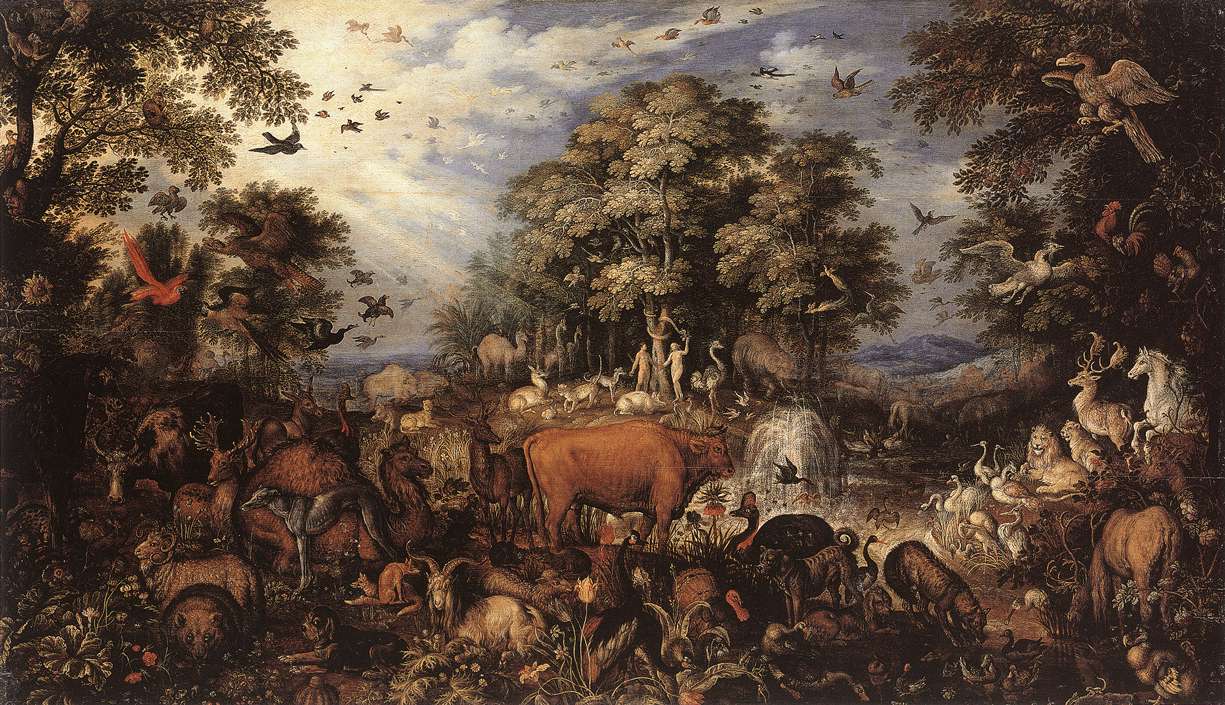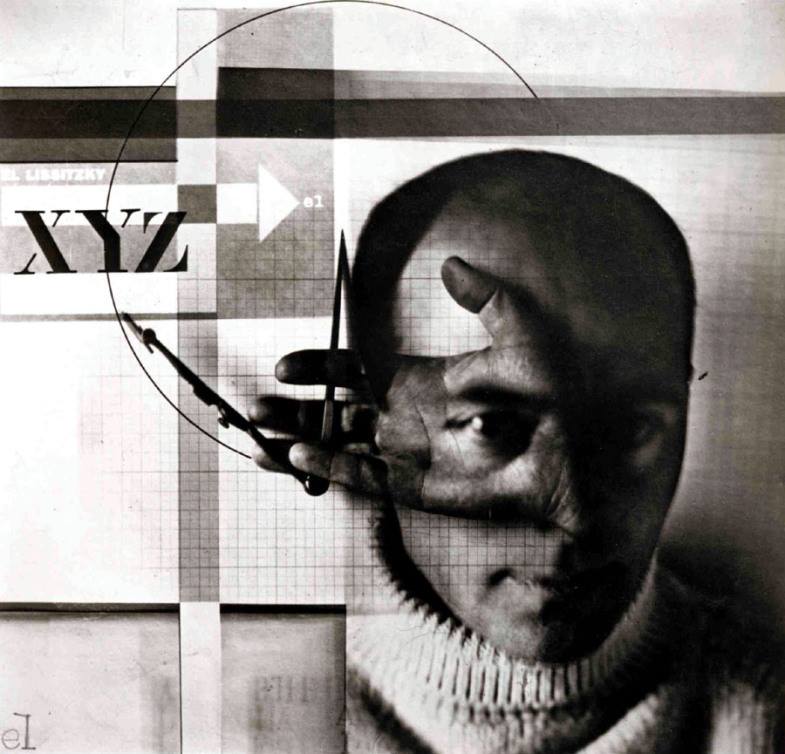Event
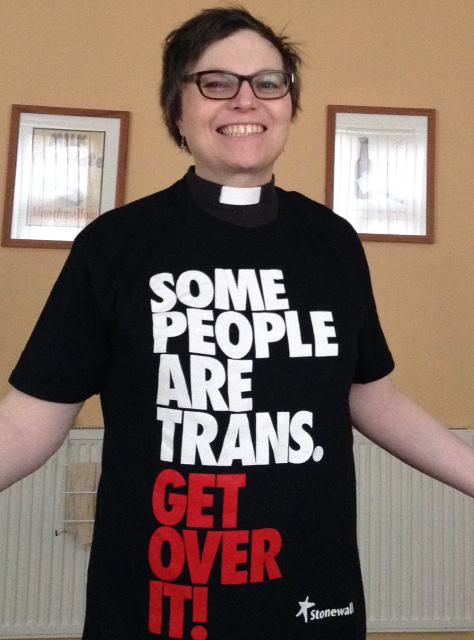
Monday 8th February 2016
University of Westminster, 309 Regent Street, London W1T
Queer London Research Forum: Second Annual Queer Literature Event
As part of LGBT History Month, the Queer London Research Forum at the University of Westminster is pleased to be hosting its second annual Queer Literature event. This year our speakers will be Rachel Mann and Roz Kaveney, who will both read from their work and take questions from the audience. The event will be followed by a wine reception.
Rachel Mann is an Anglican priest, poet and queer theologian based in South Manchester. She is transgender and the author of three books, including an autobiography, Dazzling Darkness. Her poetry covers themes of gender, sexuality and faith. Rachel is currently Resident Poet at Manchester Cathedral.
Roz Kaveney is a poet, novelist, activist and cultural commentator. Her books include Reading the Vampire Slayer, the Lambda short-listed poetry collection Dialectic of the Flesh, and the novel Tiny Pieces of Skull, which the TLS called ‘a seminal fiction work on transgender identity and transphobia’.
The event is free and can be booked online through Eventbrite.
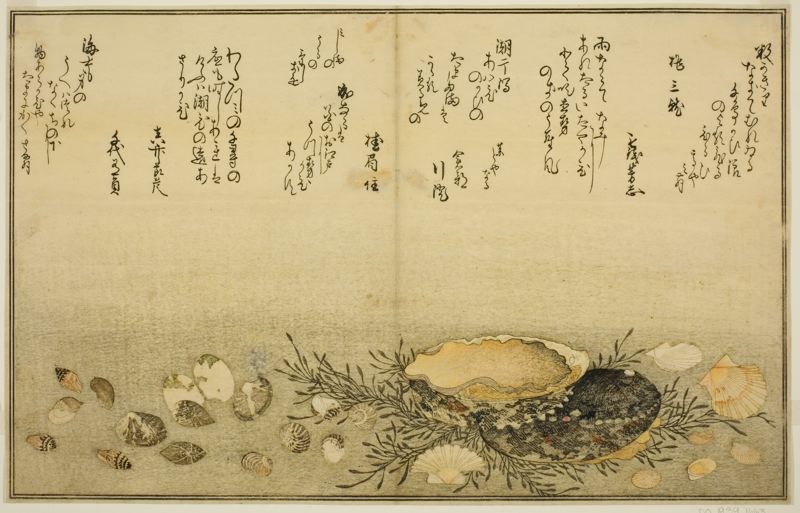
Call for Papers: “Image and Text, or, Image as Text”
Thursday 12th May 2016, University of Westminster, London
The image/text relationship is perhaps one of the most significant fields of current academic study since constructions of text and the image, the modes of reading and seeing dependent on these constructions and the relationships between each of them play an important role in the control of human perception and knowledge, and the limits and constraints that they are based upon. With the telecommunications revolution and changes in popular reading habits the boundaries between image and text are becoming increasingly blurred. This interdisciplinary conference offers a unique opportunity to explore the image/text interaction from a variety of perspectives, including literary studies, visual culture and cultural studies, photography and art history.
Topics might include, but are not limited to: the inclusion of words in Western art or calligraphy and the calligraphic art of the East and Arabic worlds; illustration as readings of writing, e.g. children’s illustration; ekphrasis, or descriptions of images in writing; adaptations of writing in the cinematic or televisual image; illustration, photography and their relationship to scientific writing and the encyclopaedia; non-standard typographic representations in literature.
Although all are welcome and encouraged to come and take part, the conference is mainly targeted at PhD researchers and Early Career Researchers and aims to offer a friendly, inter-disciplinary space for the dissemination of ideas amongst researchers with a shared interest.
Prospective authors are invited to submit a 200-word abstract to suneel.mehmi@my.westminster.ac.uk
The deadline for submission is Friday 8th April 2016. Successful candidates will be selected by the hosting committee.
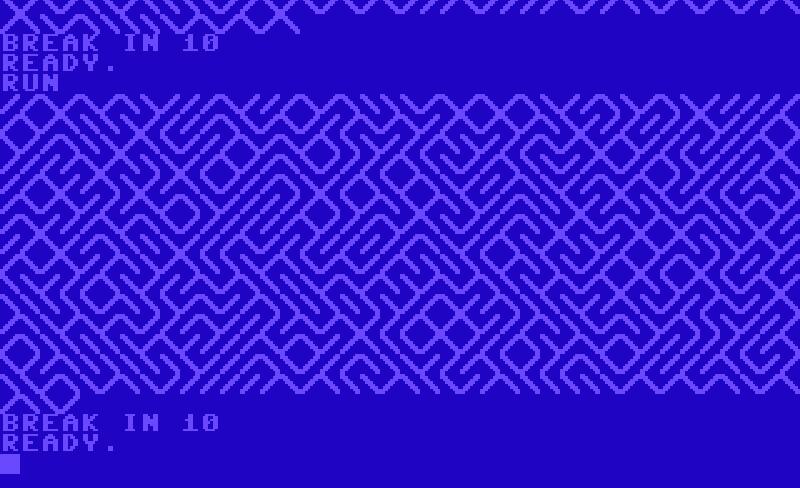
Friday, 12 February 2016, 7pm
Carroll/Fletcher, 56-57 Eastcastle Street, London, W1W 8EQ
Experimental Writing @ Carroll / Fletcher: Nick Montfort with Manfred Mohr
£5; tickets available here
Nick Montfort, a poet and artist working with computer-generated texts, will read from a selection of his works, including #! (Counterpath Press, 2015) and the forthcoming 2×6 (Les Figues, 2016). In addition, he will present some of his recent Commodore 64 visual poems, and discuss code-generated poetry, as well as broader questions of computation, language and creativity.
The reading will be followed by a conversation between Nick, digital art pioneer Manfred Mohr, and writer and academic Matthew Fuller.
This is the first event in the Experimental Writing @ Carroll/Fletcher series. Organised by the Institute for Modern and Contemporary Culture at University of Westminster and Carroll/Fletcher, the series showcases contemporary developments in experimental writing and their relationship to the visual arts.
Nick Montfort develops computational art and poetry, often collaboratively, and works as an Associate Professor of Digital Media at the Massachusetts Institute of Technology (MIT), where he also runs The Trope Tank, a DIY, boundary-transgressing MIT research lab hosting both academic and creative projects. Montfort holds a Ph.D. in Computer and Information Science from the University of Pennsylvania, a Masters in Creative Writing (poetry) from Boston University and a Masters in Media Arts and Sciences from MIT. He has been one of the key figures behind the development of platform studies, critical code studies, and electronic literature. His works have been translated into half a dozen languages and served as a basis for numerous remixes.
#! (Counterpath, 2014; the title is pronounced “shebang”) is Montfort’s latest book, and contains programs and poems. Forthcoming in 2016 is Montfort’s Exploratory Programming for the Arts and Humanities (MIT Press), which continues his long-term project to teach programming as a method of culturally engaged inquiry and making. Also coming in 2016 is 2×6 (Les Figues), a book of computer-generated poems created in collaboration with six others, in English and five other languages.
Manfred Mohr lives and works in NYC. He is a pioneer of digital art and one of the very first artists to produce drawings, paintings and sculptures using a computer. Mohr originally trained as a painter, and has made rigorously minimal, geometric paintings and drawings since the late 1950s, informed by Abstract Expressionism. He has been experimenting with algorithms and formal constraints since the 1960s, developing what he called a ‘programmed aesthetic’ inspired by philosopher Max Bense’s thinking that a ‘clear and logical’ form of art making was possible – and indeed desirable. These first experiments set Mohr on a path that he has followed to this day, despite the art world’s resistance to the idea of the computer as a legitimate art medium.
Selected solo exhibitions include Artificiata II, bitforms, New York (2015); The Algorithm of Manfred Mohr. 1963−now, ZKM – Media Museum, Karlsruhe (2013); one and zero, Carroll / Fletcher, London (2012); Kunsthalle Bremen (2007) and the Musée d’Art Moderne de la ville de Paris (1971). He has exhibited in group shows at prestigious institutions including the National Museum of Modern Art, Tokyo (1984); Museum of Modern Art, New York (1980); and Centre Pompidou, Paris (1978, 1992). His work is held in major international institutions and private collections including the Victoria and Albert Museum, London; Centre Pompidou, Paris; Museum Ludwig, Cologne; Musée d’Art Contemporain, Montreal; and Borusan Art Collection, Istanbul.
Matthew Fuller’s books include ‘Media Ecologies, materialist energies in art and technoculture’, (MIT) ‘Behind the Blip, essays on the culture of software’ and ‘Elephant & Castle’. (both Autonomedia) With Usman Haque, he is co-author of ‘Urban Versioning System v1.0’ (ALNY) and with Andrew Goffey, of ‘Evil Media’. (MIT) Editor of ‘Software Studies, a lexicon’, (MIT) and co-editor of of the Journal Computational Culture, he is involved in a number of projects in art, media and software and is Professor at the Centre for Cultural Studies, Goldsmiths, University of London.
For more information, please contact either Kaja Marczewska at k.marczewska@westminster.ac.uk or Asya Bachelis at asya@carrollfletcher.com
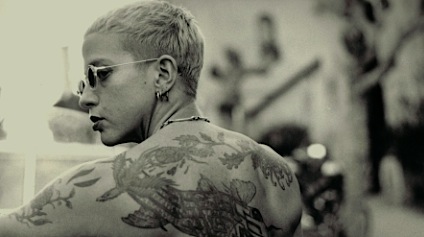
Wednesday 3 February, 5pm
Room 105, University of Westminster, 32-38 Wells Street, London W1T 3UW
‘Writing-Through’: Kathy Acker’s Don Quixote: Which Was a Dream
Georgina Colby (Westminster), with a response by Leigh Wilson
This paper reads Kathy Acker’s Don Quixote: Which Was a Dream as a form of non-procedural ‘writing-through’, a term that has its roots in the procedural practices of John Cage and Jackson Mac Low. In Don Quixote Acker’s experimental practice displaces centralized narrative, to offer a new feminist temporality. Reading the work with attention to Acker’s practice of abstraction, experimentation with translation, paragrammatic play, and the protosemantic, a method of writing-through emerges whereby voice is imbricated with the negation of language.
All welcome and entrance free. Non-Westminster guests can sign in at reception.
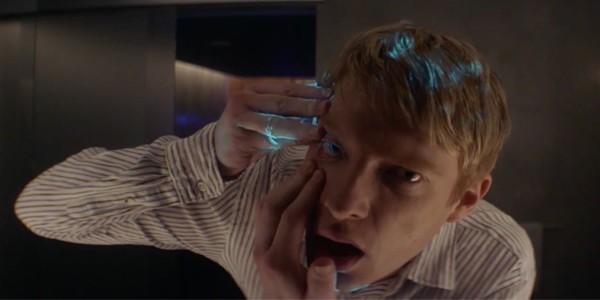
A new series of Film Matters screenings organised by the Centre for Law, Society and Popular Culture at the University of Westminster has just been announced. This year the films chosen relate to the concept of ‘change’.
First up are two films, Ex Machina and A.I. , relating to recent developments in Artificial Intelligence, forming part of the Law and Artificial Intelligence Series, the first event of which took place in October 2015. This is followed by a screening of The Imitation Game, introduced by Writer in Residence at Westminster, Mike Garry, who is currently collaborating with composer Philip Glass on a project based on the life of Alan Turing. Finally, in support of National Stroke Awareness Month, there will be screening of The Possibilities are Endless which documents the impact of the stroke suffered by musician Edwyn Collins.
Download the Film Matters 2016 season poster (PDF format).
These events are free and everyone is welcome, please register online.
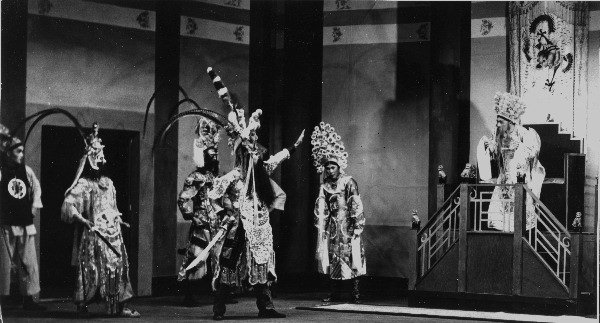
Wednesday 20th January 2016, 6.30-8.00 pm
Room UG04, University of Westminster, 309 Regent Street, London
Diana Yeh (City University, London)
From Peter Pan to Lady Precious Stream
An illustrated talk by Diana Yeh on a famous Chinese artistic couple who hit the London theatre stage in the 1930s with the play, Lady Precious Stream. A short film of this play will be shown. Organised by our colleagues in Modern Languages and Culture, in collaboration with the Meridian Society and the Department of English, Linguistics and Cultural Studies at Westminster.
Shi-I Hsiung translated several English novels and plays into Chinese, including Bernard Shaw’s Man and Superman and James Barrie’s Peter Pan. When he came to London, he adapted the Chinese Beijing opera Wang Baochuan into Lady Precious Stream, a modern Chinese drama in English which hit the London stage – the Little Theatre in the Adelphi – in November 1934. It was so successful and popular that it went on to be performed in other theatres nationwide and in other countries, including the USA, starting in Broadway, New York. Royalty and celebrities went to see the productions and the Hsiungs were feted as celebrities too. Diana Yeh tells the story of the Hsiungs and analyses their role as representatives of the new, modern Chinese cultural élite who brought Chinese culture to the West and introduced English culture to China during this period. She analyses their contribution and reception within the context of the contemporary images of China and the Chinese (‘John Chinaman’ and ‘Fu Manchu’) and the changing political and social circumstances leading up to World War II.
The event is free and open to the public. Non-University of Westminster attendees please register with Cangbai Wang by emailing c.wang6@westminster.ac.uk
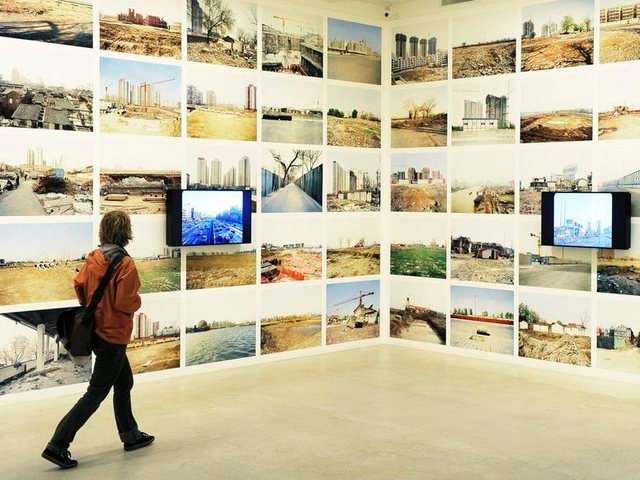
For any Swiss readers: Peter Cornwell, Director of the Data Futures project based in the IMCC, is giving a lecture this evening (Friday 11th December) with Duncan Forbes, Director and Curator of Fotomuseum Winthertur, on “Exhibiting the Medium Formally Known as Photography”.
The talk is at ZHdK (the Zurich University of the Arts) at 6.00 pm in room 6.K04.
The last decade has witnessed dramatic changes in the exhibition of photography in response to the rise of so-called post-photography and the distributed or transitive nature of photographic media. The idea of photography as one medium is increasingly impossible to sustain, as images flood across different platforms, combining still and moving forms, and offering new modes of reception and creative interaction. Nowadays the photograph is as much data as it is aesthetic or narrative, forging a new paradigm of algorithmic vision. What does it mean for photography and its audiences when the ‘traffic in photographs’ is transformed by global networks and the management of big data?
Taking Fotomuseum Winterthur as a case study, this lecture explores what these changes mean for curatorial practice and the institution of the photography museum. What would a post-photographic exhibition programme look like and what are the challenges of installation and interpretation? How should a photography museum position itself today, in relation to both physical and virtual audiences? What does it mean for the infrastructure of the museum as online platforms and retina displays proliferate and preservation-quality digitization becomes the norm? Is the institutional production of algorithmic vision sustainable and what are the creative possibilities? And what does a culture of ubiquitous, and sometimes disorienting, change mean for the staging of the history of photography?
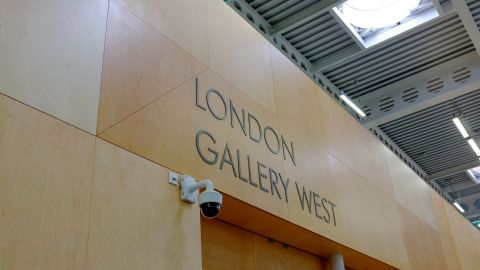
In Process Private view
Thursday 10 December, 6.00 pm
Gallery West – Project Space, University of Westminster, Harrow Campus
In Process (2015) is the inaugural exhibition from the Centre for Research and Education in Art and Media (CREAM) doctoral caucus based at the University of Westminster, including work by our own Steve Smith. The exhibition is a showcase of the various vibrant strands of interdisciplinary research being undertaken at the university. The focus is on modes in which CREAM students further practice-based modes of inquiry as means of art-making and producing contributions to knowledge and contributions to experience. Students undertaking principally theoretical research will also present elements of their research using practical modes. The exhibition will present work from ten doctoral students in the Project Space of Gallery West, and will be paralleled by a programme of film showings and performances.
Estéfani Bouza, Cinzia Cremona, Sue Goldschmidt, Alexandra Jönsson, Mirko Nikolić, Fathima Nizaruddin, Alexa Raisbeck, Bhavna Rajpal, Arne Sjögren, Steve Smith.
University of Westminster, Watford Road, Harrow, Middlesex HA1 3TP
Nearest Tube station: Northwick Park (Metropolitan line)
10 December 2015 – 8 January 2016
Opening times: 10am – 10 pm daily
Further details: www.westminster.ac.uk/inprocess
Wednesday 9 December, 5pm
Room 105, University of Westminster, 32-38 Wells Street, London W1T 3UW
‘Take this Instant’: Sacrifice, Testimony and the Gift of My Death
Shela Sheikh (Goldsmiths), with a response by Elinor Taylor
In Aporias: Dying—Awaiting (One Another at) the “Limits of Truth”, Jacques Derrida poses the question: ‘My death—is it possible?’ How is this question to be understood, and who can pose it? And if my death is properly mine, how am I to account for—in fact, to give an account of—this? This paper responds to these questions by turning to accounts of both being-towards and surviving death in Maurice Blanchot’s fictional/autobiographical récit, ‘The Instant of my Death’, but also the phenomenon of pre-recorded video-testimonies in which the subject announces his/her own death, and does so from a temporality that is at once past, present and futural. Through a reading of technically-mediated performances of accounting for and bearing witness to one’s ‘own’ death—and with this a consideration of the logic of sacrifice, radical passivity, the gift of death, and the contemporary conjunction between religion, geopolitical conflict and media—Sheikh proposes that such accounts bears witness to what Derrida identifies as the anachronistic ‘history of death’ in the Christian West, before supplementing this focus on the West with further consideration of what Nelson Maldonado-Torres names ‘the coloniality of being’.
All welcome and entrance free. Non-Westminster guests can sign in at reception.
Followed by drinks in the Green Man…
11 December 2015, 9.00am-5.00pm
Natural History Museum, London
Recent months have seen an explosion of public, media and academic interest in the idea, threat and reality of extinction. This acknowledgement has contributed to debates over climate change and other, related, ways that humanity has altered environments and ecosystems in this epoch we have begun to call the Anthropocene. This one-day conference asks what role can culture play in widening the understanding, representation and, indeed, remembrance of this unfolding and catastrophic species loss. With this in mind, the event aims to foster dialogue between academics, journalists, museum curators, charities, writers, environmental groups, and the media to explore how societies engage with the complexities of the processes of extinction and remember the extinct. More specifically, the event examines how increased dialogue between these communities and constituencies contributes to the public re-evaluation and remembrance of life on our planet.
Speakers:
Dan Barnard & Rachel Briscoe. Lead Artists, fanSHEN Environmental Theatre Collective.
Fae Brauer. Professor of Art and Visual Culture, University of East London.
Sbastian Brooke. Director, MEMO (Mass Extinction Monitoring Observatory).
Melanie Challenger. Author, On Extinction.
Cathy Dean. Director, Save the Rhino.
Sebastian Groes. English and Creative Writing, Roehampton University.
Steve Parker. Author, Extinction: Not the End of the World?.
Jules Pretty. Professor of Environment and Society, University of Essex.
Bernd Scherer. Director, Haus der Kulturen der Welt, Berlin.
Matt Williams. Associate Director, A Focus on Nature.
Matthew Wills. Biodiversity Lab, University of Bath.
Free tickets: register at https://www.eventbrite.co.uk/e/culture-memory-and-extinction-tickets-19379987063
Website: https://naturalhistoryofmemory.wordpress.com/london-2015/
Email: memoryandextinction@gmail.com
Organised by The Natural History of Memory: Dr Lucy Bond (Westminster), Dr Rick Crownshaw (Goldsmiths), Dr Jessica Rapson (King’s College London); Research assistant: Ifor Duncan (Goldsmiths).
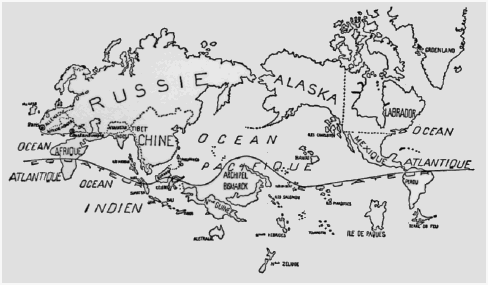
Wednesday 25th November 2015, 5.00pm
Room 105, University of Westminster, 32-38 Wells Street, London W1T 3UW
Inventing Maps: Towards a Geography of the Avant-Garde
Andreas Kramer (Goldsmiths), with a response by John Beck (IMCC)
This talk will explore how European avant-garde movements of the early twentieth century turned to geography to assert, validate and contest their artistic and political aims. The Italian Futurists famously claimed, in their founding manifesto of 1909, that ‘Time and space died yesterday’. Their claim signals the avant-garde’s desire to break with scientific conceptions of time and space; yet the issue of geographic location would persistently haunt the avant-garde’s emergence in various European cities and nations, just as the international dissemination of the avant-garde was framed by powerful, and sometimes strikingly original, geographical imaginations. Drawing on a range of examples from futurism, Dada and surrealism, this paper explores the visual and textual rhetoric of the map and mapping.
All welcome and entrance free. Non-Westminster guests can sign in at reception.
Followed by drinks in the Green Man…
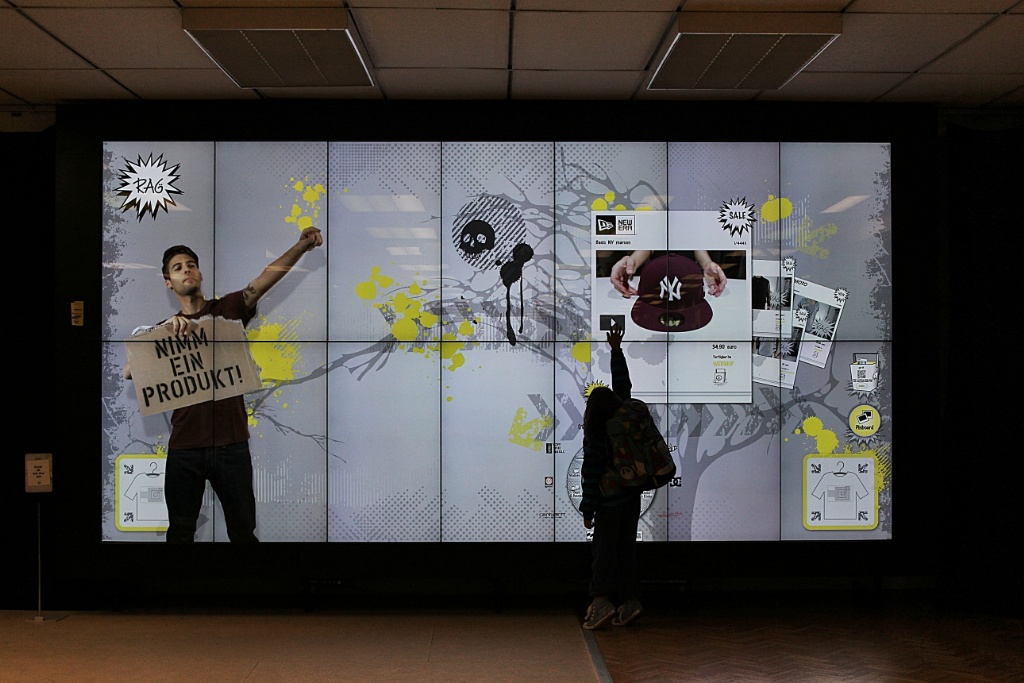
Wednesday 25 November, from 11.00 am
Furtherfield Commons, Finsbury Park, London
The Shopping Cyborg: A Flash Mob Ethnography
Join anthropologist and Westminster MA Museums, Galleries and Contemporary Culture student Chiara Garbellotto for a group exploration into how our relationships with technology in retail and exchange spaces make us into cyborgs. Working with tools from anthropology, especially Laura Forlano’s flash mob ethnography, we will observe and discuss the embodied experience of the shopper. We will share our ideas on how our bodies interact with technology and what kind of data we produce and mediate. Places limited to 12 people.
Arrive from 10:30am for a 11:00 start. Coffee and cake provided. Dress for the weather and please bring with you a printed image (photograph/clipping/drawing) of a shopper. It can represent any kind of exchange process and environment. Please also bring a means to take photographs and download the images (laptops are not needed).
Book here.
In association with the Museum of Contemporary Commodities: www.moccguide.net

Thursday 19th November, 4.30-5.30pm
Room 211, University of Westminster, Little Titchfield Street, London
Queer London
Simon Avery and Katherine Graham, with Francis Ray White
The fifth in the Autumn series of Social Sciences and Humanities research seminars will be presented by our own Simon Avery and Kate Graham, from English, with a response by Francis Ray White in History, Sociology and Criminology. All welcome.
Simon and Kate are co-directors of the Queer London Research Forum (QLRF), based at the University of Westminster, which was established in September 2013. Its aim is to facilitate interdisciplinary discussion on various aspects of queer London, c. 1850-present. By bringing together academics, practitioners, students and those with an interest in queer issues more generally, the hope is to to encourage dialogue and debate about the range of London’s queer lives and experiences.
Please note earlier 4.30 start time for this week only.
For further information please contact: andreaspm@westminster.ac.uk.

Wednesday 11th November, 5.00-8.00pm
Architecture Studios, University of Westminster, Marylebone Road, London
What is at Play in Environmental Design?
What kinds of research are required to understand the forms of the human-environmental relation today? Part of Westminster’s Architecture Play Week, this symposium brings together a number of speakers giving short presentations on the kinds of environmental practitioners we might need in the future.
Speakers include: Claudia Dutson, Jon Goodbun, Susannah Hagen, Karin Jaschke, Torange Khonsari, Shaun Murray, Mirko Nicolic, Isis Nunez-Ferrera, Peg Rawes, Andreas Rumpfhuber, Douglas Spencer, and Victoria Watson.
For further details, contact Jon Goodbun at: jcgoodbun@mac.com
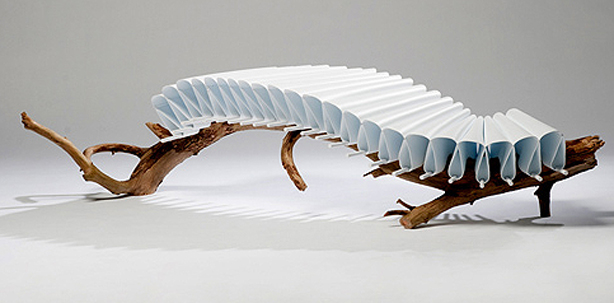
Thursday 12th November, 5.00-6.30pm
Room 211, University of Westminster, Little Titchfield Street, London
Entanglements + Folds of Pleasure
Victoria Brooks and Adam Eldridge
The fourth in the Autumn series of Social Sciences and Humanities research seminars will be presented by Victoria Brooks from Westminster’s Law School, with a response by Adam Eldridge in History, Sociology and Criminology. All welcome.
For further information please contact: andreaspm@westminster.ac.uk.

Thursday 5th November, 5.00-6.30 pm
Room 2.11, University of Westminster, Little Titchfield Street, London
“Beyond the Gaze: New Architecture of Security”
Elisabetta Brighi (Politics and International Relations)
with response by David Cunningham (IMCC)
For the latest in Westminster’s series of Social Science and Humanities research seminars, Elisabetta Brighi will be presenting a paper on the new American Embassy in London and architectures of security with a response from David Cunningham. All welcome.
Wednesday 4th November 2015, 5pm
Westminster Forum, 32-38 Wells Street, London W1T 3UW.
Professor Andrew Benjamin (Kingston) will be with us at the Institute to discuss his new book Art’s Philosophical Work. The book offers an argument for how art ‘works’, using examples from Nicholas Poussin, Albrecht Dürer, Georg Baselitz, El Lissitsky and Karel Appel. Andrew’s talk will be followed by responses from Kaja Marczewska on ‘iteration’, David Cunningham on ‘relationality’ and Matthew Charles on ‘colour’.
The event is free and open to the public (guests will need to sign-in at reception).
Followed by drinks in The Green Man, Riding House Street.
Andrew Benjamin is a Distinguished Professor of Philosophy and the Humanities at Kingston University, UK, and Professor of Philosophy and Jewish Thought at Monash University, Australia. His many publications include Working with Walter Benjamin (2012), Of Jews and Animals (2010), Place, Commonality and Judgment (2010) and Style and Time: Essays on the Politics of Appearance (2006).
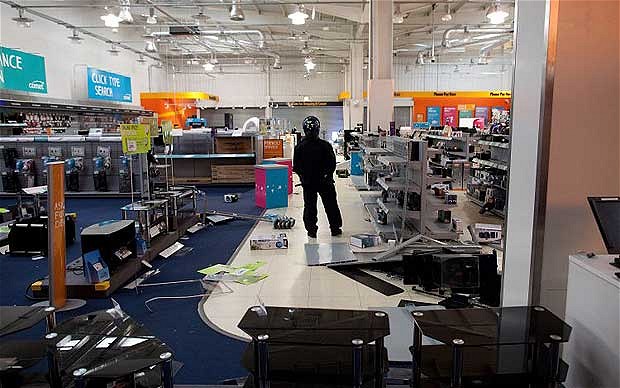
A note that the University of Westminster’s SSH Faculty Seminars for this year begin on Thursday 22nd October, 5.00-6:30pm. These will be held every Thursday in room 2.11 in the University’s Little Titchfield Street building.
The first seminar will be led by Lea Sitkin and Dorrie Chetty from the Department of History, Sociology and Criminology, who will be giving a paper on “Tottenham: The People’s Perspective”, with a response by Nitasha Kaul from the Department of Politics and International Relation. Wine and soft drinks will be provided…
Future seminars include Elisabetta Brighi on New Architectures of Security, with a response from the IMCC’s David Cunningham (November 5th); Victoria Brooks from Westminster’s Law School on ‘Entanglements and Folds of Pleasure’ (November 12th), with a response by Adam Eldridge; Simon Avery and Kate Graham on Queer London (November 19th); Derek Hird on Chinese Men in London, with a response from our own Anne Witchard (December 10th); and, rounding things up, our old friends Ben Pitcher (Sociology) and Andreas Philippopolous-Mihalopolous (December 17th).
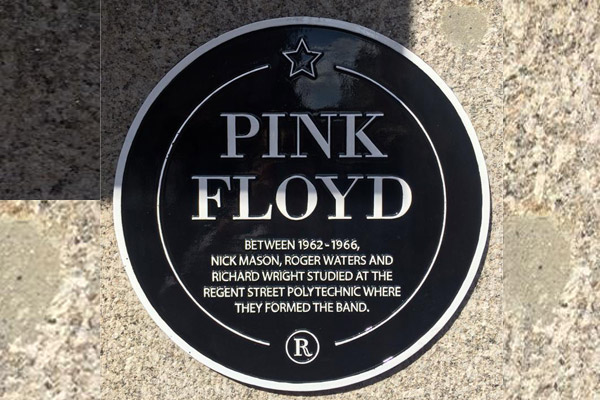
October 27th 2015, 6pm
University of Westminster, Little Titchfield Street, London W1W 7BY
The Artist Contract in the Digital World
Organised by our colleagues in the Law School at Westminster: a conversation between Nick Mason (Pink Floyd), Chris Ancliff (Warner Music Group) and Paul Pacifico (Featured Artists Coalition) on the evolution of the artist/record company contract.
Chris Ancliff is the General Counsel (International) at the Warner Music Group and was previously General Counsel at EMI Group plc. Paul is the first full time CEO of the Featured Artists Coalition. Nick Mason is a renowned composer, musician and producer, who in some ways will be ‘coming home’ for the event – along with fellow architecture student Roger Waters, he held rehearsals for their band Sigma 6 in the student common room in what is now the Law School building. As part of Pink Floyd he later returned to play in the building’s grand art deco Portland Hall, where this event takes place. It is now almost 50 years since Pink Floyd signed their first contract with EMI, and the evolution of this relationship will be discussed, along with consideration of various current issues.
Attendance is free, please register online.
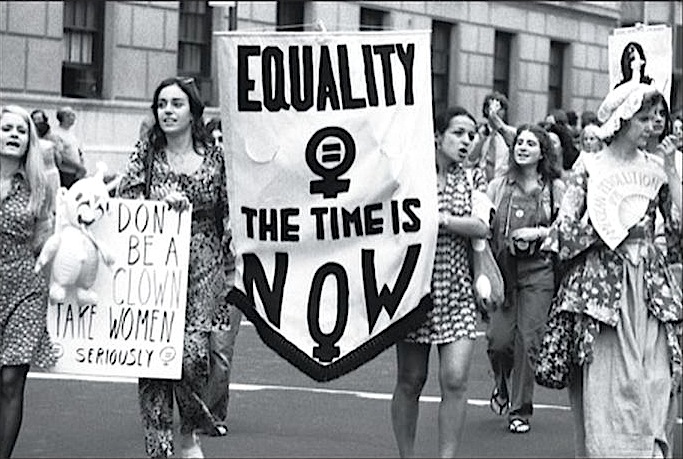
A final reminder that this year’s series of English Literature and Cultural Studies research seminars will kick off at 5pm on Wednesday 14th October with Victoria Browne from Oxford Brooks speaking on ‘Generational Politics in Feminist History’. Sanna Melin Schyllert, a doctoral researcher at Westminster, working on feminism and modernism, will respond to Victoria’s talk.
“Sisterhood” is the familial metaphor most often associated with feminism; yet in fact, metaphors of “feminist foremothers”, “mothers” and “daughters” are employed just as frequently to convey relationships between feminists of different ages and eras. This kind of generational symbolism has been subject to serious criticism in feminist theory in recent years – for giving rise to “Oedipal” anxieties, and portraying the history of feminist theory and activism in terms of a struggle between “overbearing mothers” and “undutiful daughters”. This talk will examine critiques of the generational model of feminism, thinking through various significations of the generational metaphor, and its relation not only to feminist history but historical time more generally.
This first seminar will be followed by a drinks reception to celebrate the start of the new series and to welcome the new members of our research community. The seminar will take place in Room 105, University of Westminster, 32-38 Wells Street, London W1T 3UW (nearest tube stations: Oxford Circus, Tottenham Court Road, Goodge Street).
Directions here: http://www.westminster.ac.uk/about-us/visit-us/directions/wells-street


The Institute for Modern and Contemporary Culture
University of Westminster Department of English, Linguistics and Cultural Studies
32-38 Wells Street, London W1T 3UW. United Kingdom.


